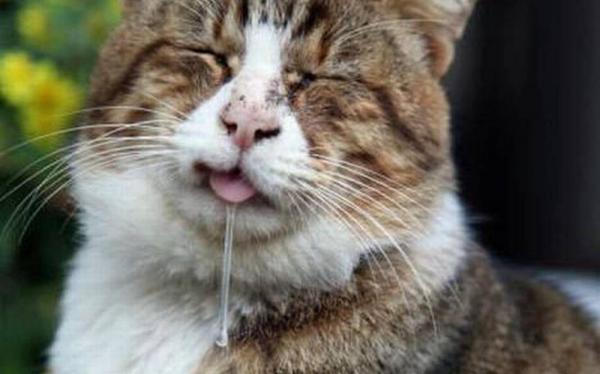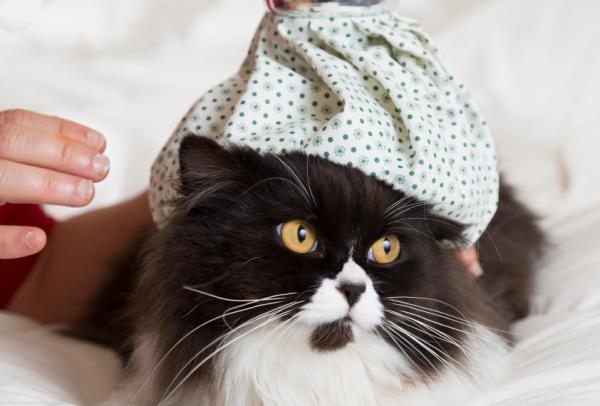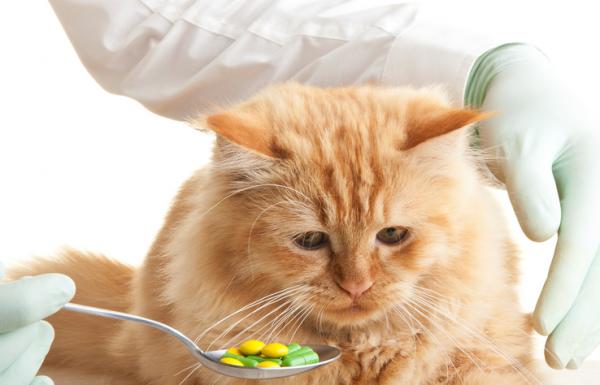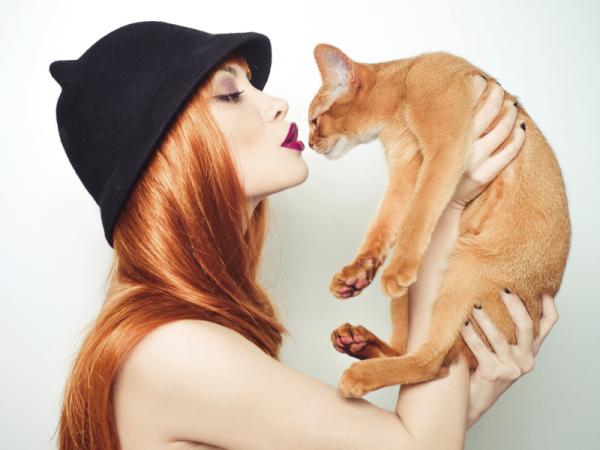Why does my cat drool a lot?

Receives the name of ptyalism la excessive production of saliva, both in cats and in other mammals. Sometimes it’s just another trait of the feline’s personality, but this is quite unusual.
A cat that is drooling is a sign of alarm for their masters, especially when it comes to a behavior that had never manifested, so it reveals that something is not right with your furry friend. Keep reading this article to discover why your cat drools a lot.
He has ingested poison
A cat poisoned o intoxicated drools in most cases and, if this is the reason, the cat should be taken to the veterinarian immediately. Cats are at risk of ingesting poison by mistake, mainly when they have access to the outside, either because they scavenge in the garbage cans, because they consume the flesh of a smaller animal killed by poisoning, and even that there is someone with bad intentions. the animals in the surroundings.
However, there are also risks within the home, such as intoxication with cleaning or hygiene products, that at all times should remain as far as possible from the pussycat.
The pipettes and other treatments that are applied on the body for the treatment of fleas and ticks produce a similar effect if the cat decides to lick that area of the body. In any of these cases, the saliva is usually abundant and thick, and even present in the form of foam. If you suspect a poisoning in the cat go immediately to a professional and never make him vomit if you do not know the substance he has ingested. Bleach, for example, can cause caustic burns if you try to vomit it.
He is sick
It is possible that the drooling is consequence of a disease that is ongoing and that produces vomiting or nausea in your cat, which accelerates salivation. If this happens frequently (some days, several times in a same day), it indicates a problem that must be addressed quickly. If, on the contrary, the drooling appears after the expulsion of a ball of hair, for example, something sporadic, there is nothing to worry about.

Is stressed
We already know that stress in cats is an important trigger of multiple discomfort, especially when they associate certain facts to situations that are unpleasant, such as an unexpected visit to the veterinarian.
Among the symptoms that could indicate that your pussycat is going through a stress situation, is the uncontrolled drooling. Why? When something causes your excessive cat fear or nervousness, his neurological system sends a series of response orders as a shield to that situation that he is not able to control, and this can be expressed in the form of slime.
Effect of a medicine
Anyone who has a cat at home knows how complicated it is to medicate a cat, especially when it comes in the form of syrup. If your pussycat is one of these, then surely you’ll see it drool all over the house after the dose of your treatment, accompanying this of looks of hatred towards you, of course.
Usually this drooling disappears after a while, as it is caused by the animal’s displeasure. the taste of the drug, and the fact that you want to force him to take it. However, if you notice that it persists, you may be intoxicated and need to be checked by a veterinarian.

Something is wrong in his mouth
The dental health of your cat is of great importance, an aspect that is often neglected. Things like cavities, an infection in the tongue or gums, tumors, ulcers and wounds in the mouth, traumatisms in the jaws, etc., cause excessive drooling that is accompanied by bad odor, unusual colors such as red or green in the saliva, among others.
On the other hand, it is also possible that there is some object stuck in the teeth or oral cavity of the cat, either something that has been caught by itself, or even chicken bones or spines. That is why it is always recommended to offer meat without any bone or chips.
He loves being with you!
Although it is not very common, some cats they drool for the sheer pleasure that they produce certain situations that they love, like receiving affection and pampering from their masters. When this is the reason for drooling, it is usually presented since the animal is young.
A cat that loves catnip or catnip can drool when it smells, and even when it feels like it is about to receive your favorite food. Behaviors that, although unusual, are likely to occur, making felines a little more like us.

If you want to read more articles similar to Why does my cat drool a lot?, we recommend that you enter in our Curiosities section of the animal world.


